The Snowman Read online
Page 13
“There you go.”
“Sylvia was given a short conditional sentence because she was able to sow seeds of doubt. She said she didn’t know what was in the backpack, she had brought it with her as a favor for a Nigerian living in Norway.”
“Mm. What else?”
“Ane likes Rolf. He’s kind and thoughtful and has boundless love for the children. But apparently he’s quite blind in all things Sylvia. Twice she fell in love with other men and left Rolf and the children. But the men left her and both times Rolf happily took her back.”
“What was her hold over him, do you think?”
Katrine Bratt mounted a smile tinged with sadness and gazed into the air as her hand stroked the hem of her skirt. “The usual, I would guess. No one can leave someone they have good sex with. They can try, but they always go back. We’re simple souls like that, aren’t we?”
Harry nodded slowly. “And what about the men who left her and didn’t come back?”
“It’s different with men. Over the course of time some of them suffer from performance issues.”
Harry eyed her. And decided not to pursue that subject.
“Did you see Rolf Ottersen?”
“Yes, he arrived ten minutes after you left,” Katrine said. “And he looked better than last time. He’d never heard of the plastic surgery clinic in Bygdøy, but he signed the declaration of consent to waive doctor-patient confidentiality.” She left the folded sheet on his desk.
An ice-cold wind blew over the low stands at Valle Hovin, where Harry sat watching the ice skaters gliding around the circuit. Oleg’s technique had become more supple and effective in the last year. Every time his friend accelerated to pass him, Oleg sank lower, dug in harder and calmly sailed off.
Harry called Espen Lepsvik and they caught up on each other’s news. Harry found out that a dark sedan had been seen entering Hoffsveien late on the night Birte disappeared. And it had returned the same way not long afterward.
“Dark sedan,” Harry repeated with a grim shiver. “Sometime late that night.”
“Yes, I know it’s not a lot to go on.” Lepsvik sighed.
Harry was stuffing the phone in his jacket pocket when he sensed that something was obscuring one of the floodlights.
“Sorry I’m a bit late.”
He looked up into the jovial, smiling face of Mathias Lund-Helgesen.
Rakel’s envoy took a seat. “Are you a winter sportsman, Harry?”
Harry noticed that Mathias had this direct way of looking at you, with an expression that was so intense it gave you the feeling he was listening even when he was talking.
“Not really. Bit of skating. And you?”
Mathias shook his head. “But I’ve decided that the day my life’s work is done and I’m so ill I no longer want to live, I’ll take the lift up to the top of the ski-jump tower on that hill there.”
He jerked his thumb over his shoulder and Harry did not need to turn. Holmenkollen, Oslo’s dearest monument and worst ski jump, could be seen from everywhere in town.
“And then I’ll jump. Not on skis but from the tower.”
“Dramatic,” Harry said.
Mathias smiled. “A hundred-and-thirty-foot free fall. Over in seconds.”
“Not imminent, I trust.”
“With the level of anti-Scl-70 in my blood, you never know.” Mathias laughed grimly.
“Anti-Scl-70?”
“Yes, antibodies are a good thing, but you should always be suspicious when they appear. They’re there for a reason.”
“Mm. I thought suicide was a heretical notion for a doctor.”
“No one knows better than doctors what diseases involve. I agree with the stoic Zeno, who considered suicide a worthy action when death was more attractive than life. When he was ninety-eight years old he dislocated his big toe. This upset him so much that he went home and hanged himself.”
“So why not hang yourself instead of going to all the trouble of climbing to the top of the Holmenkollen ski jump?”
“Well, death should be a sort of homage to life. Anyway, I have to confess that I like the idea of the publicity that would come in its wake. My research attracts very little attention, I’m afraid.” Mathias’s jolly laughter was slashed to pieces by the sound of swift-moving skate blades. “By the way, I’m sorry I bought new speed skates for Oleg. Rakel didn’t tell me that you had planned to buy a pair for his birthday until afterward.”
“No problem.”
“He would have preferred to have them from you, you know.”
Harry didn’t answer.
“I envy you, Harry. You can sit here and read the paper, make a call on your phone, talk to other people; for him it’s good enough that you’re just here. When I cheer and shout and encourage him and do everything the manual says a good father should do, he just gets irritated. Did you know that he polishes his skates every day because he knows that you used to do that? And until Rakel demanded that skates had to be kept indoors, he insisted on leaving them outside on the steps because you once said that skate steel should always be kept cold. You’re his role model, Harry.”
Harry shuddered at the thought. But somewhere deep inside—no, not even that far—he was pleased to hear this. Because he was a jealous bastard who would have liked to imprecate a mild curse on Mathias’s attempts to win over Oleg.
Mathias fidgeted with a coat button. “It’s strange in these divorce-ridden times, with children and their deep awareness of their origins. The way a new father can never replace the real one.”
“Oleg’s real father lives in Russia,” Harry said.
“On paper, yes,” Mathias said with a crooked smile. “But not in reality, Harry.”
Oleg sped past and waved to the two of them. Mathias waved back.
“You’ve worked with a doctor called Idar Vetlesen,” Harry said.
Mathias eyed him with surprise. “Idar, yes. At Marienlyst Clinic. Goodness, do you know Idar?”
“No, I was Googling his name and found an old Web site listing doctors employed at the clinic. And your name was there.”
“That’s a few years ago now, but we had a lot of fun at Marienlyst. The clinic was started at a time when everyone believed that private health enterprises were bound to make a lot of money. And closed down when we saw things were not like that, of course.”
“You went bust?”
“I think downsized was the term used. Are you a patient of Idar’s?”
“No, his name came up in connection with a case. Can you tell me what kind of person he is?”
“Idar Vetlesen?” Mathias laughed. “Yes, I can say quite a bit about him. We studied together and hung around in the same crowd for many years.”
“Does that mean you no longer have any contact?”
Mathias shrugged. “I suppose we were quite different, Idar and I. Most people in our crowd saw medicine as … well, as a calling. Apart from Idar. He made no bones about it. He was studying medicine because it was the profession that commanded most respect. At any rate, I admire his honesty.”
“So Idar Vetlesen was preoccupied with earning respect?”
“There was money, too, of course. No one was surprised when Idar took up plastic surgery. Or that he ended up at a clinic for a select clientele comprising the rich and famous. He had always been attracted by that sort of person. He wants to be like them, to move in their circles. The problem is that Idar tries a bit too hard. I can imagine that these celebrities smile to his face, but behind his back they call him a clinging, pretentious jackass.”
“Are you saying he’s the kind who would go to great lengths to achieve his goals?”
Mathias mulled this over. “Idar has always searched for something that could bring him fame. Idar’s problem is not that he isn’t energetic, but that he’s never found his mission in life. The last time I spoke to him he sounded frustrated, depressed, even.”
“Can you imagine him finding a mission that would bring him fame? Something o
utside medicine, perhaps?”
“I haven’t thought about it, but maybe. He’s not exactly a born doctor.”
“In what way?”
“In the same way that Idar admires the successful and despises the weak and infirm. He’s not the only doctor to do so, but he’s the only one to say so outright.” Mathias laughed. “In our circle, we all started as out-and-out idealists who at some point or other became more preoccupied with consultant positions, paying off the new garage and overtime rates. At least Idar didn’t betray any ideals; he was the same from the get-go.”
Idar Vetlesen laughed. “Did Mathias really say that? That I haven’t betrayed any ideals?”
He had a pleasant, almost feminine face, with eyebrows so narrow that one might have suspected him of plucking them, and teeth so white and regular that one might have suspected they were not his own. His complexion looked soft and touched up; his hair was thick and rippled with vitality. In short, he looked several years younger than his thirty-seven.
“I don’t know what he meant by that,” Harry lied.
They were each ensconced in a deep armchair in the library of a spacious white house, built according to the old, august Bygdøy style. His childhood home, Idar Vetlesen had explained as he guided Harry through the two vast, dark lounges and into a room whose walls were lined with books. Mikkjel Fønhus. Kjell Aukrust. Einar Gerhardsen’s Tillitsmannen. A broad range of popular literature and political biographies. A whole shelf of yellowing issues of Reader’s Digest. Harry didn’t see a single copy published after 1970.
“Oh, I know what he meant.” Idar chuckled.
Harry had an inkling what Mathias had implied by the two of them having a lot of fun at the Marienlyst Clinic: They probably competed to see who could laugh the most.
“Mathias, the saintly bastard. Lucky bastard, more like. No, by Christ, I mean both.” Idar Vetlesen’s laughter pealed out. “They say they don’t believe in God, but my God-fearing colleagues are terrified moral strivers accumulating good deeds because deep down they’re petrified of burning in hell.”
“And aren’t you?” Harry asked.
Idar elevated one of his elegantly formed brows and eyed Harry with interest. Idar was wearing soft light-blue moccasins with loose laces, jeans and a white tennis shirt with a polo player over the left breast. Harry couldn’t remember which brand it was, only that for some reason he connected it with bores.
“I come from a practical family, Inspector. My father was a taxi driver. We believe what we can see.”
“Mm. Nice house for a taxi driver.”
“He owned a taxi company, had three licenses. But here in Bygdøy a taxi driver is, and always will be, a plebeian.”
Harry looked at the doctor and tried to determine whether he was on speed or anything else. Vetlesen was sitting back in his chair in an exaggeratedly casual fashion, as though anxious to hide a restless or excited state. The same thought had gone through Harry’s mind when he had called to explain that the police wanted answers to a few questions and Vetlesen had extended an almost effusive invitation to his home.
“But you didn’t want to drive a taxi,” Harry said. “You wanted … to make people look better?”
Vetlesen smiled. “You could say that I offer my services in the vanity market. Or that I repair people’s exteriors to soothe the pain inside. Take your pick. Actually, I don’t give a damn.” Anticipating a shocked reaction from Harry, Vetlesen laughed. When Harry did not take the bait, Vetlesen’s expression became more serious. “I see myself as a sculptor. I don’t have a vocation. I like to change appearances, to shape faces. I’ve always liked that. I’m good at it, and people pay me for it. That’s all.”
“Mm.”
“But that doesn’t mean that I’m without principles. And patient confidentiality is one of them.”
Harry didn’t answer.
“I was talking to Borghild,” he said. “I know what you’re after, Inspector. And I understand that this is a grave matter. But I can’t help you. I’m bound by my oath.”
“Not any longer.” Harry took the folded sheet of paper out of an inside pocket and placed it on the table between them. “This statement, signed by the father of the twins, exempts you.”
Idar shook his head. “That won’t make any difference.”
Harry frowned in surprise. “Oh?”
“I can’t say who has been to see me or what they’ve said, but I can say in general that those who come to a doctor with their children are protected by the oath of client confidentiality, even with respect to their spouse, if they so wish.”
“Why would Sylvia Ottersen hide from her husband the fact that she’d been to see you with her twins?”
“Our behavior may seem rigid, but do remember that many of our clients are famous people who are exposed to idle gossip and unwanted press attention. Go to Kunstnernes Hus on a Friday evening and take a look around. You have no idea how many of them have had parts trimmed here and there at my clinic. They would swoon at the very idea that their visits here might become public knowledge. Our reputation is based on discretion. If it should ever come out that we are sloppy with client information, the consequences for the clinic would be catastrophic. I’m sure you understand.”
“We have two murder victims and one single coincidence,” Harry said. “They’ve both been to your clinic.”
“That I neither will nor can confirm. But let us suppose for the sake of argument that they have.” Vetlesen twirled a hand through the air. “So what? Norway is a country of few people and even fewer doctors. Do you know how few handshakes we all are from having met one another? The coincidence that they have been to the same doctor is no more dramatic than that they might have been on the same tram at some point. Ever met friends on a tram?”
Harry couldn’t think of a single occasion. First off, he didn’t take the tram that often.
“It was a long trip to be told that you won’t tell me anything,” Harry said.
“My apologies. I invited you here because I assumed that the alternative was the police station. Where, right now, the press is scrutinizing the comings and goings day and night. Yes, indeed, I know those people …”
“You are aware that I can get a search warrant, which would render your oath of confidentiality null and void?”
“Fine by me,” Vetlesen said. “In that case the clinic will be on the side of the angels. But until then …” He closed an imaginary zipper across his mouth.
Harry shifted in his seat. They both knew that to get the courts to waive the oath of confidentiality, even for a murder case, the police would need clear evidence that the doctor’s information would be of significance. And what did they have? As Vetlesen himself put it, a chance meeting on a tram. Harry felt a strong need to do something. To drink. Or to pump iron. With a vengeance. He breathed in.
“I’m still obliged to ask you where you were on the nights of the second and the fourth of November.”
“I was counting on that.” Vetlesen smiled. “So I had a think. I was here with … yes, and here she is.”
An elderly woman with mousy hair hanging like a curtain around her head entered the room with mousy steps and a silver tray bearing two cups of coffee, which rattled ominously. The expression on her face suggested she was carrying a cross and a crown of thorns. She cast a glance at her son, who jumped up in a flash and took the tray.
“Thanks, Mother.”
“Tie your shoelaces.” She half turned to Harry. “Is anyone going to inform me who comes and goes in my house?”
“This is Inspector Hole, Mother. He’d like to know where I was yesterday and three days ago.”
Harry stood up and stretched out his hand.
“I remember, of course,” she said, giving Harry a resigned look and a hand covered in liver spots. “We watched that talk show featuring your curling friend. And I didn’t like what he said about the royal family. What’s his name again?”
“Arve Støp.” Idar sighed.
>
The old lady leaned over toward Harry. “He said we should get rid of the royals. Can you imagine anything so dreadful? Where would we have been without the royal family during the war?”
“Right where we are now,” Idar said. “Seldom has a head of state done so little during a war. And he also said that broad support for the monarchy was the final proof that most people believe in trolls and fairies.”
“Isn’t that dreadful?”
“Veritably, Mother.” Idar smiled, placing a hand on her shoulder and simultaneously catching sight of his watch, a Breitling, which seemed large and unwieldy on his thin wrist. “My goodness! I have to go now, Hole. We’ll have to hurry this coffee along.”
Harry shook his head and smiled at Fru Vetlesen. “I’m sure it’s delicious but I’ll have to save it for another day.”
She heaved a deep sigh, mumbled something inaudible, took the tray and shuffled out again.
When Idar and Harry were in the hall, Harry turned. “What did you mean by lucky?”
“Sorry?”
“You said Mathias Lund-Helgesen wasn’t just a saintly bastard, he was lucky, too.”
“Oh that! It’s this woman he’s fixed himself up with. Mathias is generally pretty helpless in this area, but she must have been with a couple of losers in her life. Must have needed a God-fearer like him. Well, don’t tell Mathias I said that. Or actually even mention it.”
“By the way, do you know what anti-Scl-70 is?”
“It’s an antibody in the blood. May suggest the presence of scleroderma. Do you know someone who’s got it?”
“I don’t even know what scleroderma is.” Harry realized he should let it go. He wanted to let it go. But he couldn’t. “So Mathias said she had been with some losers?”

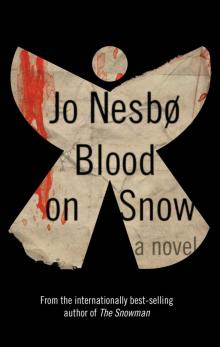 Blood on Snow: A novel
Blood on Snow: A novel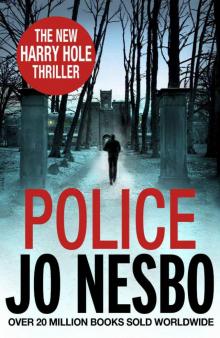 Police: A Harry Hole thriller (Oslo Sequence 8)
Police: A Harry Hole thriller (Oslo Sequence 8) Doctor Proctor's Fart Powder: The Great Gold Robbery
Doctor Proctor's Fart Powder: The Great Gold Robbery Bubble in the Bathtub
Bubble in the Bathtub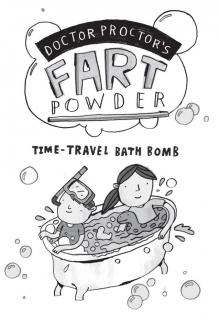 Doctor Proctor's Fart Powder: Time-Travel Bath Bomb
Doctor Proctor's Fart Powder: Time-Travel Bath Bomb The Bat
The Bat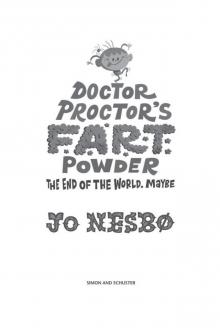 Doctor Proctor's Fart Powder: The End of the World. Maybe.
Doctor Proctor's Fart Powder: The End of the World. Maybe.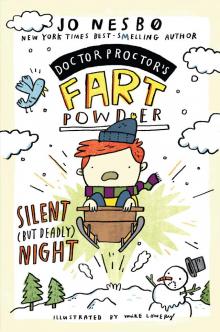 Silent (but Deadly) Night
Silent (but Deadly) Night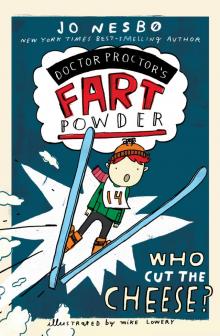 Who Cut the Cheese?
Who Cut the Cheese? Headhunters
Headhunters The Jealousy Man and Other Stories
The Jealousy Man and Other Stories Harry Hole Mysteries 3-Book Bundle
Harry Hole Mysteries 3-Book Bundle The Thirst
The Thirst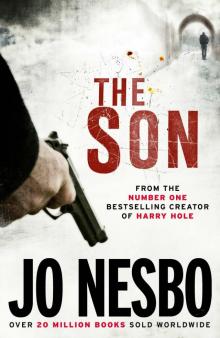 The Son
The Son The Redeemer
The Redeemer The Kingdom
The Kingdom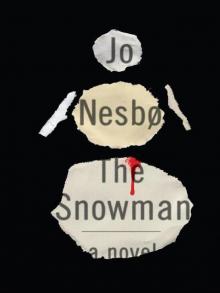 The Snowman
The Snowman The Redbreast
The Redbreast Phantom
Phantom Macbeth
Macbeth The Leopard
The Leopard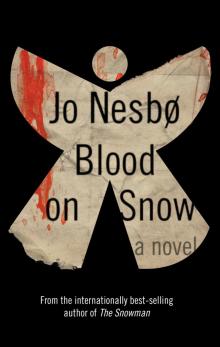 Blood on Snow
Blood on Snow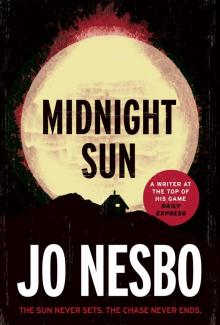 Midnight Sun
Midnight Sun The Redbreast (Harry Hole)
The Redbreast (Harry Hole)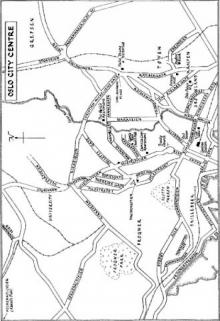 The Devil's Star
The Devil's Star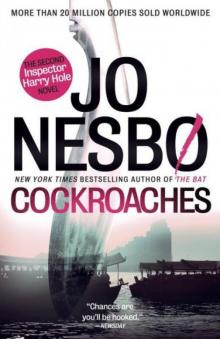 Cockroaches
Cockroaches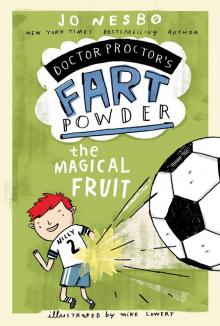 The Magical Fruit
The Magical Fruit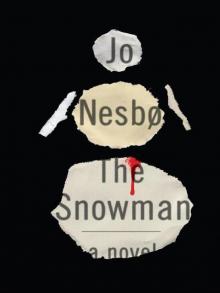 The Snowman: A Harry Hole Novel
The Snowman: A Harry Hole Novel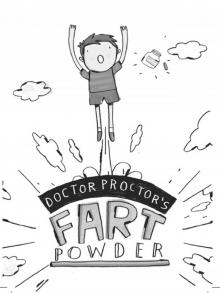 Doctor Proctor's Fart Powder
Doctor Proctor's Fart Powder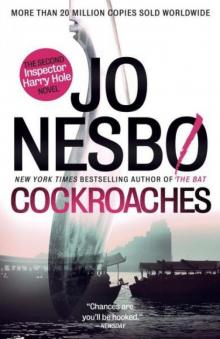 The Cockroaches
The Cockroaches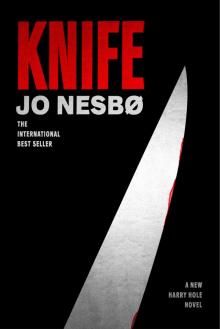 Knife
Knife Phantom hh-9
Phantom hh-9 The Redbreast hh-3
The Redbreast hh-3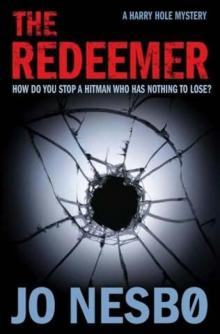 The Redeemer hh-6
The Redeemer hh-6 The Leopard hh-8
The Leopard hh-8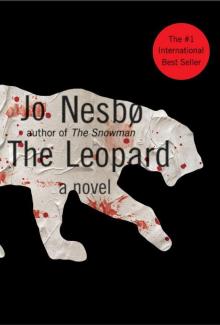 The Leopard: An Inspector Harry Hole Novel
The Leopard: An Inspector Harry Hole Novel The Great Gold Robbery
The Great Gold Robbery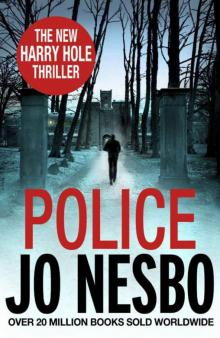 Police hh-10
Police hh-10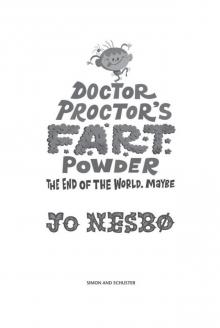 The End of the World. Maybe
The End of the World. Maybe The Thirst: Harry Hole 11
The Thirst: Harry Hole 11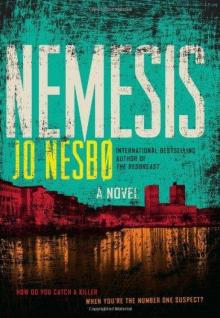 Nemesis - Harry Hole 02
Nemesis - Harry Hole 02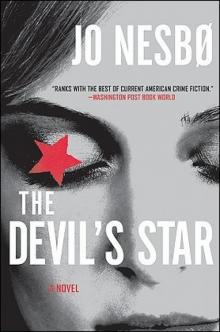 The Devil's star hh-5
The Devil's star hh-5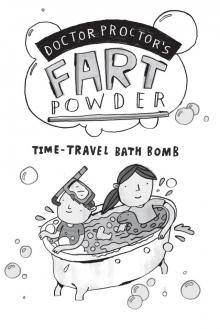 Time-Travel Bath Bomb
Time-Travel Bath Bomb